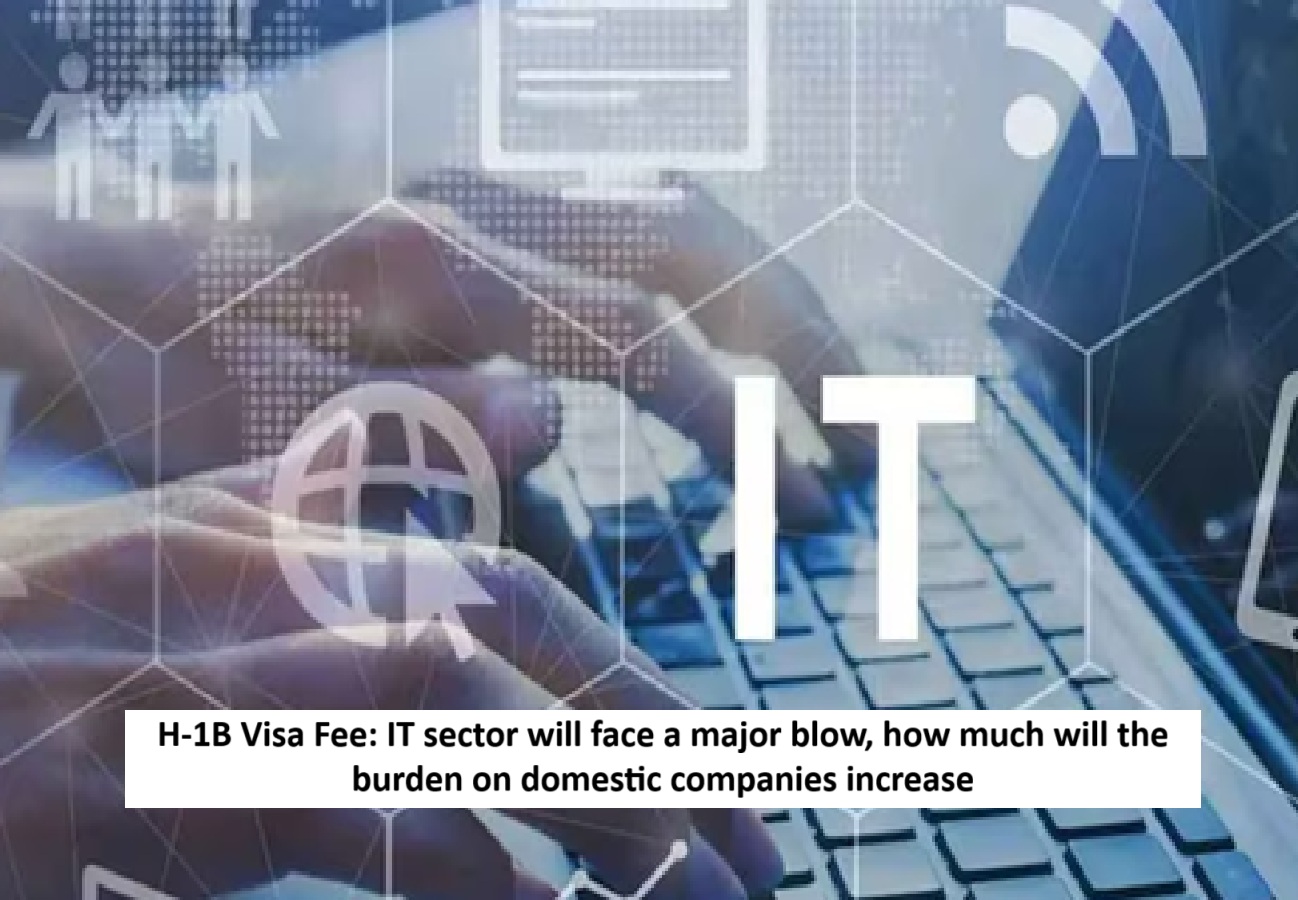
News Topical, Digital Desk : The United States has announced major changes to the H-1B visa program. President Trump signed an order on Friday imposing a higher fee of $100,000 for each visa application, and linking it to a salary equal to or better than market rates. Experts say this could be the biggest setback in the H-1B program's history, directly impacting Indian IT companies, American tech giants, and smaller IT players.
This decision could have a greater impact on India because Indians are the leading recipients of H-1B visas. Indians accounted for approximately 71% of the total H-1B visas in FY24, while China's share was 11.7%. Approximately 400,000 H-1B applications were approved in FY24, of which 141,000 were for new jobs and 258,000 were for continuing jobs. The number of approved applications for new jobs far exceeds the 85,000 limit because many petitions are approved under exemptions. Among Indian IT companies, Infosys received 8,137 approved visas, TCS 5,272, Wipro 1,636, and Tech Mahindra 1,199. This means that the total number of approved visas for these four giants is 16,244. Among American and global companies, Amazon had 9,257 approved visas in FY24, followed by Microsoft with 4,725, Meta with 4,844, and HCL America with 2,952. This means the top four American companies hold approximately 38,170 H-1B visas, 2.3 times the number of the top four Indian IT companies. Consulting firms like Ernst & Young, Capgemini America, and Deloitte are also among the top recipients of H-1B visas. The new rules will significantly increase the cost burden for the Indian IT sector's giants. Top Indian IT companies will incur approximately $1.6 billion for 16,000 visas, representing approximately 8% of their FY24 total EBITDA ($18.6 billion). Small and mid-cap IT players may opt out of the program altogether, as they will find it difficult to afford such a large amount. American companies like Amazon, Microsoft, Meta, and EY, which hold a large number of H-1B visas, will also face significant financial pressure. However, Indian IT companies have reduced their reliance on H-1Bs in the past few years. In FY19, Indian IT companies held approximately 46,000 H-1Bs, which fell to 24,766 in FY24. These companies are focusing on local hiring, automation, and delivery centers in nearby countries to reduce their reliance on US visas. This could accelerate further. The prevailing wage rule will also have an impact . Under the new policy, H-1B workers will be required to be paid at or above the market rate, depending on their role and location. This is intended to protect the wages of American workers, but it could also impact existing H-1B workers by increasing costs for companies. Uncertainty currently persists regarding re-entry and renewals, a move the industry is closely monitoring. Is this the end of the H-1B program? Experts believe this increased fee could spell the end of the H-1B program in its current form, as the cost could be too high for many companies.
--Advertisement--

 Share
Share



